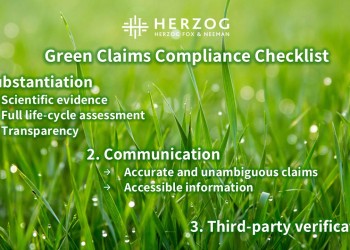A Fundamental Reform of the Israeli Telecommunications Licensing Regime
18 July 2022
Dear clients and friends,
We wish to update you that the Israeli Parliament has passed a comprehensive amendment (“Amendment no. 76” or the “Amendment“) to the Communications Law (Telecommunications and Broadcasting) (the “Telecommunications Law“) which fundamentally changes the existing licensing regime and establishes a completely new regulatory framework.[1] According to a public announcement of the Ministry of Communications (“MOC“), the purpose of the reform is to significantly reduce the regulatory burden in the field of telecommunications services in Israel, and to implement what is defined as a ‘fast track’ to ease the entry of small entities into the telecommunications market.
In accordance with the reform, upon the effective date of the Amendment, whoever wishes to provide telecommunications services to the public in Israel, via a telecommunications network, can register to a dedicated registry which will be maintained by the MOC (the “Registry“) and to the extent the minimum threshold and conditions set out by the MOC are met, the registered person or entity can start providing the services subject to a General Authorization’s provisions as will be published by the MOC (“General Authorization“). Such registration process for the provision of telecommunications services would be according to the Amendment the default licensing format. This regulatory regime is similar to the legal regime under the European Directive from 2002 (as amended in 2018). [2]
Under the current basic legal norm, prior to the effective date of the Amendment’s, obtaining a license is required in advance in order to carry out any telecommunications operation and to provide any telecommunications service. Following the Amendment, obtaining a license would be the exception to the General Authorization framework and it would only apply to telecommunications services that are explicitly listed in the Telecommunications Law as being of special importance, which justifies closer supervision, such as regulation in market circumstances where an operator has significant market power or in the case of a license involving the use of a scarce public resource.
Based on the current definition of a ‘Telecommunications Service’, prior to the Amendment, the main factor in determining whether a service is subject to the licensing requirement is the installation, operation or existence of a telecommunications facility. As part of the Amendment, this definition will be replaced, and in accordance with the new definition the elements that characterize the provision of regulated telecommunications service will be the essence of the service and its provision to the public through a telecommunications network for a business purpose.
Under the new format of regulation, performing a telecommunication operation (as opposed to providing telecommunications services to a third party) will no longer require a license,[3] the scope of the telecommunications services that require a license will be reduced, and the existing distinction between the different types of licenses will be cancelled.[4] After the amendment, the regulation will be based solely on two frameworks: registering in the General Authorizations’ Registry or applying for a license for specific telecommunications services as set forth in the amended Telecommunications Law.
Since Amendment 76 is a broad and comprehensive amendment to the Telecommunications Law, this review will focus only on the major changes in the format of the regulation – what are the services that are only subject to registration; what are the services that require a license; and, where applicable, what are the exceptions to the applicability of the licensing obligation.
Telecommunication Services that are Subject to Registration in the General Authorizations’ Registry
The telecommunications services that are subject to the General Authorization registration process are the three types of services listed below, to the extent that they are provided to the general public, or part of it (rather than to a specific entity), through a telecommunications’ network for the service provider’s business-commercial purposes:
- Telephony services – voice calls service only, including Voice over Broadband, if originating or receiving the calls involve numbering resources, according to the national numbering plan;
- Internet access services – ISP or Internet infrastructure service, or both, if they are provided for consideration;
- Data transmission services – the service that is currently referred to in the telecommunications regulations promulgated under the Telecommunications Law as “data communication services”, which are not provided through the public Internet network, including a service currently referred to as a “transmission service”, provided between facilities of telecommunication operators, or multichannel TV platform licensees, or between terminal equipment.
Other services that may also fall within the scope of the General Authorizations’ regulatory regime are services that will be included in the First Schedule to the Communications Law, as determined by the Minister of Communications, and approved by the Israeli Parliament’s Economics Committee, if they find that adding a service to this regulatory regime’s scope is justified, based on the considerations that are set forth in Section 58A of the Telecommunications Law.
The Amendment also stipulates preconditions for registration in the Registry, including a localization requirement of the telecommunications service provider, who has to be incorporated and registered in Israel, or for a company that is incorporated outside Israel – a requirement to be registered in Israel as a foreign company. In addition, the Minister of Communications is authorized to impose further conditions, restrictions and obligations, through the General Authorizations’ regulations that will apply to those registered in the Registry.
Telecommunications Services that are Subject to a Specific Licensing Requirement
The law enumerates a list of four telecommunications services and one telecommunication operation which are provided for the service provider’s business-commercial purposes, which will be subject to a license, as follows:
- Telecommunications services through a cellular systems (cellular services) – if the provision of the services involves usage of radio frequencies, within the frequency range specified in the Second Schedule to the Telecommunications Law. This is an essential service to the public and the number of competitors is limited due to the required use of frequencies that are a scarce resource;
- Telecommunications services provided in a large scale through a telecommunication network – where the number of users subscribed to the network, the network’s endpoints, or the terminal endpoints exceeds the threshold determined by the Minister of Communications. This does not include telecommunications services provided by using such network of another telecommunications service provider (for example MVNOs);
- Telecommunications services provided through an Israeli satellite communications network – if one of the following applies: (1) the network includes a fixed or mobile ground station in Israel for communication with a satellite; or (2) the network includes a satellite that has an affinity to the State of Israel due to the registration location of the satellite – with respect to a fixed location (Geostationary), it is registered in the International Telecommunications Union (“ITU“) under the name of the State of Israel, or in case that the network is not in a fixed location (Non- geostationary) – the satellite is located in an orbit that is registered in the ITU under the name of the State of Israel;
- Any telecommunications service provided by a local authority;
- A telecommunications operation in a ground telecommunication facility that connects between a point in Israel and a point outside Israel – such as the underwater cable.
The Minister of Communications is authorized to add other services to this category of specific licensing requirements, subject to the approval of the Israeli Parliament’s Economics Committee, if their regulation through registration in the Registry is deemed insufficient, based on the considerations specified in the Telecommunications Law.
Exceptions to the Licensing Requirement’s Applicability
The Amendment replaces the existing provision stipulating the exceptions to the licensing requirement and, instead, mandates a list of three types of services whose provision is totally exempted from the licensing or General Authorization requirements, as follows:
- A telecommunications service that is ancillary to a main service which is not a telecommunications service – these are services that are based on communication components and data transmission, but the service the customer receives is not a telecommunications service. Such services may include, for example, withdrawing cash from an ATM, traveling in an autonomous vehicle, or providing Internet content filtering service, where this service is ancillary to the Internet access service.
- Data transfer services or a service that is listed in the First Schedule to the Telecommunications Law, where the service provider does not determine the quality of service that is provided to the subscribers nor the specifications of the telecommunications network through which the service is provided – this seems to only include data services provided over the Internet, also known as OTT (Over the Top) services, provided on a best effort basis.
- A telecommunications service provided through a global satellite system – if the MOC has confirmed that both of the following conditions are met: (1) the system has no affinity to the State Israel and (b) the system is subject to regulation in a country that is listed in the Second Schedule (currently the United States and Member States of the European Union). A global satellite system is considered to have an affinity to the State of Israel if the services which are provided through it are mainly provided in Israel, if it includes a ground satellite station within the territory of Israel, or if its satellites are located in locations or make use of orbits that are registered in the ITU under the State of Israel’s name.
Transitional Provisions – Implications on Existing Licensees and Permit Holders
A number of transitional provisions have been set forth in the Amendment to adjust the existing licensing landscape to the new regulatory framework. The transitional provisions apply to the following: (1) an entity who had a general or special license and the provision of the service for which it obtained the license requires registration in the Registry or a license under the Amendment; (2) a licensee who is subject to a universal service obligation; (3) an entity who has been granted a general permit for the provision of telecommunications services under the current Telecommunications Law (“Old General Permit“) and the provision of the service in respect of which it was granted the Old General Permit requires, according to the Amendment, either registration in the Registry or obtaining a license in accordance with the new framework; and (4) an entity which provides services that currently do not fall within the scope of an Old General Permit or any license, and pursuant to the Amendment such services will require General Authorization or a specific license.
The Amendment’s Date of Commencement
The Amendment will come into force on October 2nd, 2022 (the “Effective Date“). However, if the regulations regarding the General Authorization framework have not been enacted by then or if the MOC failed to complete by this point the arrangements for maintaining the Registry, the Minister of Communications is authorized, subject to the approval of the Israeli Parliament’s Economics Committee, to postpone the Effective Date for an additional period not exceeding 6 months.
We estimate that the regulations under the Amendment, and the changes that will apply to the existing regulations will be available for public hearing in due course.
[1] The Communications (Telecommunications and Broadcasting) Law (Amendment No. 76), 5722-2022, as published here (in Hebrew).
[2] Directive (EU) 2018/1972 of the European Parliament and of the Council of 11 December 2018 establishing the European Electronic Communications/Code (https://eur-lex.europa.eu/legal-content/EN/TXT/?uri=uriserv%3AOJ.L_.2018.321.01.0036.01.ENG)
[3] Except in the case of an underwater cable that falls within the scope of a “telecommunication operation in a telecommunications facility that connects a point in Israel and a point outside Israel”, according to the provision of Section 2 (e) of the Communications Law.
[4] Under the current language of the Telecommunications Law, there are a variety of types of licenses (such as a general, special or unique license).
Herzog’s Telecom and Media team will be happy to assist you with any questions or advice regarding Amendment No. 76, the scope of its application and its implications for a license or permit granted by law prior to this Amendment, or on applications for a license that were submitted under the current legal regime.
Kind Regards,
Herzog Fox and Neeman
Ruly Ber | Partner
Phone: 03-6922871
berr@herzoglaw.co.il
Esther Sternbach | Partner
Phone: 03-6922871
sternbache@herzoglaw.co.il





